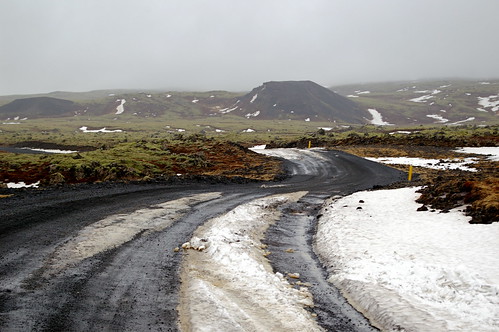Is it safe to travel to Iceland after volcanic eruption? Your rights if you have a holiday booked
Iceland #Iceland

The earth is at its most restless in Iceland right now. A volcano is erupting on the Reykjanes Peninsula, southwest of Reykjavik.
For six weeks the Icelandic authorities have been monitoring seismic activity close to Keflavik airport, a major North Atlantic aviation hub.
The eruption is around 10 miles southwest of the airport and northeast of the town of Grindavik – whose 4,000 inhabitants were evacuated as a precaution.
Yet flights are continuing to arrive and depart as normal. These are the key questions and answers on consumer rights.
I am in Iceland. Will I be able to leave?
Yes, assuming the international airport remains open. So far operations have been largely normal, after a pause to assess the risk as the eruption began. An easyJet departure to Manchester due out early evening on Monday eventually took off at 1.35am on Tuesday, over five hours late, and arrived safely at Manchester airport at 4am.
Passengers were told: “We’re sorry that your flight has been delayed. This is because volcanic activity in Keflavik is causing restrictions to the areas in which aircraft are permitted to fly. The safety of you and our crew is our highest priority and we thank you for your patience.”
On Tuesday most flights are running normally.
You may be keen to leave earlier than booked, in order to guarantee your getaway, but at present you will not be able to switch flights without paying a penalty.
The Foreign Office has not updated its advice for weeks, after the seismic activity in the area began.
Earlier earthquakes struck just 10 miles south of Iceland’s main airport, Keflavík International, but the UK Foreign Office said travel can go ahead (Vafri.is)
But didn’t an Icelandic volcano shut down European aviation for a week?
Yes. Travellers may remember where they were in April 2010, when the Icelandic volcano Eyjafjallajokull erupted. The skies of northern Europe completely closed to passenger aviation for almost a week.
A quarter of a billion cubic metres of volcanic ash was ejected and was carried southeast towards the UK and continental Europe by the breeze. The fear was that volcanic ash could damage jet engines and potentially bring down aircraft. In the biggest shutdown of aviation since the Second World War, 50,000 flights were cancelled and 8 million passengers had their travel plans wrecked.
More than 50,000 flights, with eight million passengers booked to travel, were cancelled.
So far in 2023, though, ash has not been an issue in the current geological outburst.
Thankfully, the circumstances are very different. Eyjafjallajokull erupted with a glacier on top. The addition of melting water meant that the lava cooled very quickly into tiny fragments. These were promptly propelled into the atmosphere to a height of 30,000 feet by the steam produced in the eruption.
The current eruption is not having anything like the same effect. The lava will cool and remain on the ground.
In addition, new guidelines established in the wake of the 2010 eruption allow aircraft to fly if volcanic ash is present in reasonably small quantities. Another Icelandic volcano erupted in 2011, and in that case only 1 per cent of flights in northern Europe were cancelled – rather than 100 per cent on some days in that extraordinary time.
Iceland’s Blue Lagoon has been closed as a precuation (AP)
What if I am booked on a package holiday?
Foreign Office advice stops well short of advising against travel to Iceland, meaning holiday companies can continue to operate as normal – with no automatic right to cancel.
Iceland is a country peppered with volcanic sites (Icelandic Met Office)
Until and unless the Foreign Office warns against travel, the assumption is that everything will go ahead as normal.
The FCDO advises travellers to check the following resources for updates:
The one exception is for holidaymakers who had planned to stay at the Blue Lagoon, an increasingly popular “wellness” destination, with an upmarket hotel on the site. The Blue Lagoon is currently closed.
Only those booked for a stay have the chance to cancel; if you were hoping to pop in as a day visitor for a steamy stop in the volcanic rock pools, you will need to return at some time in the future.
Can I claim on insurance?
No, unless it is one of the vanishingly rare “cancel for any reason” policies. On standard travel insurance, “disinclination to travel” is not an acceptable reason for a claim.
Would you go to Iceland at the moment?
Yes, I would relish the opportunity. Winter is an excellent time to visit Iceland for good value. Conditions right now are also excellent for the prospect of a good show from the Northern Lights, which are at the peak of the regular 11-year cosmic cycle.
I also know that the Icelandic authorities are expert at handling seismic events, with extremely good monitoring and emergency systems in place.
I would book a package holiday, though, knowing that if the earth gets too restless for comfort in the vicinity, I would be able to cancel for a full refund.
It could also be that the new eruption becomes an attraction in its own right, as some have done. But not right now. Clive Stacey, founder of the leading Iceland specialist travel firm Discover The World, said: ”As things stand this is not a ‘tourist eruption’ in its present phase and sightseers have been warned to stay away from the area.
“At Discover The World our thoughts are with the people of Grindavik at this very difficult time. Suffice to say that the town was evacuated long before this latest eruption took place.”